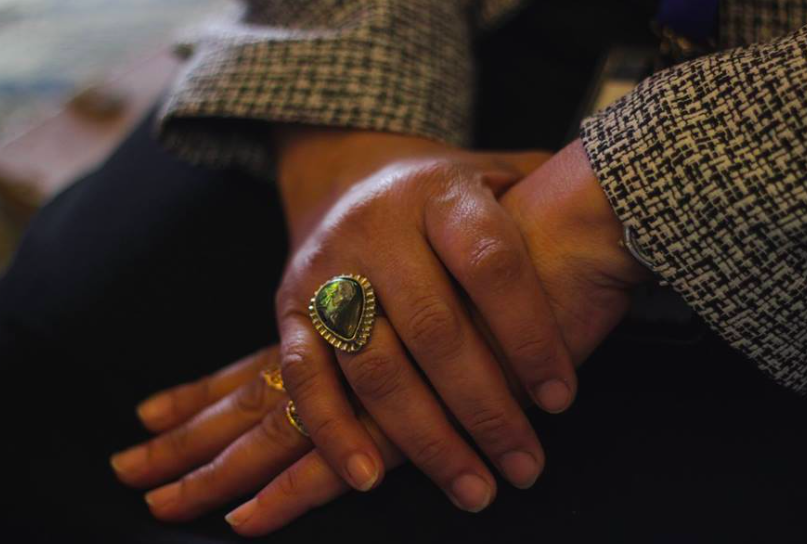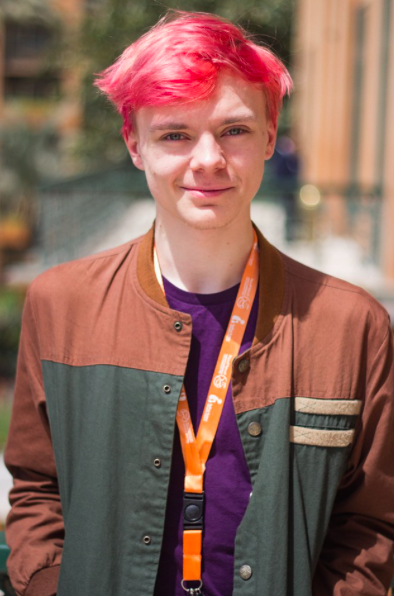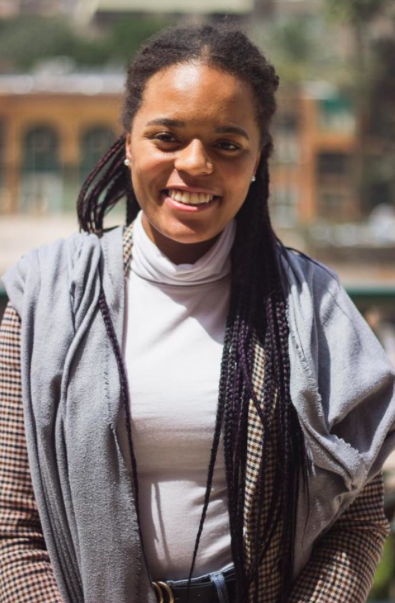The Humans of Cairo page has finally tackled one of the most avoided narratives in the Arab world: Adoption. In 2018, Minister of Social Solidarity, Ghada Wali, announced that by 2025 all orphanages will be closed as it is better for a child to grow up as part of a family. Wali encouraged families to raise children with unidentified parents.
In 2008, Wataneya Society was registered under the Ministry of Social Solidarity as a non-profit organization that aims to provide a safe environment for the orphans in Egypt. Watneya addresses the challenges that Egypt’s institutions face regarding homes for children and the parenting care issues.
According to the Dubai International Award, Wataneya was recognized as one of the best six organizations worldwide in improving orphans’ living environments, and in 2014 it was selected by the MBC Hope program as the best project according to the Humanitarian Category in the Arab region.
Humans of Cairo is the perfect hub that sheds light on the versatility presented in Egypt’s streets. This week, the social media platform shared stories while participating in the Sanad Conference for alternative care held by Wataneya for the Development of Orphanages.
Here are some of the stories that captured the true essence of adoption, orphanages and foster families:

“I’ve been married for years now, but we weren’t blessed with kids of our own. One day, a friend of mine told me to try Kafala “Adoption process in Islam” and you’d be happy. My husband was hesitant about it first but he didn’t want to turn me down. I took the first step and filed for an application at the social authority office and miraculously, I was blessed with people who made the process so smooth. I went to an orphanage, but they kept postponing me for a year. So, I went to another one and found an 8-years old girl to adopt, but I soon realized that it’s really hard to adopt an old child, she didn’t want to leave her sisters as well and I didn’t say no. I forgot about the idea for a long period of time afterward and even my husband told as long as we are happy, we are fine till one day I received a call from an orphanage’s principle, I immediately felt it’s about another child and it was.
She wanted me to go and see a 2-year-old toddler, I told her that I stopped thinking about it, but she told me that she was a special case and the administration chose you personally to adopt her and be her mom. My husband objected because of the misery I lived before, so I told him, I’ll just go and see the girl, at the end of the day, it’s our decision. So I did to see her, she was too young and my heart just went to her, she was stubborn and aggressive but I wouldn’t have left her. I asked about her mom, they told me that she dropped her here once and since then she kept picking her up and dropping her off, but it’s been one year since we’ve heard from her; that’s why she developed those strong behaviors from a young age. I told them that I want her but how can we proceed while her mom is still alive. They told me that you’d take her but I’d need to sign a document that in case of her mother shows up, I’d need to give her my daughter back and I agreed. 4 Years later now, she’s with us and she’s everything to us. We struggled at the beginning but we had a therapist helping us with her behavioral issues. we’re so happy with her becoming our daughter calling us mom and dad.”

“I left my home when I was 14 because my mom was a drug addict and depressed, and my father was in the alt-right and a very well know nazi in Germany and busy all the time, so no one could care for me anymore. I had to go to foster care and start living on my own and become independent. When I got there, I got into lots of trouble because my foster care home was extremist religiously, so they were very strict & hateful against people who are free of a mindset and of a belief-set. I’ve got beaten and bullied a lot, especially from social workers and leader of the social home. And when I decided to move out, they made my situation even harder; they tried to shaft debt into me, as my room which I was sharing with another guy, was quite demolished from people living there before us, so the leader shafted all the blame to me and said that I have to pay for decorations and the damage I’ve done. It was around 500 euros of debt and I had no way to prove that it wasn’t me, but gladly some of my friends helped me cover the cost. Afterward, everything got better; my mental and physical health got better, I got to experience life in a very different way because in foster care life was so dull and grey, it was looking kind of sad and hopeless. After I moved out, everything was so bright & happy and I finally found my enjoyment in life and I would say found my will to life again as I was very depressed. I’m happy I kept going on, as I got to meet so many great people who helped me get where I am right now. Part of my success is being here in the conference with colleagues from Germany building a bridge between Egypt and German for further collaborations in developing foster care.”

“I moved out from my parents’ house at the age of 15. I don’t know my father, I always lived with my mother and my three half-siblings. It was really a violent environment, so I decided for myself that I don’t really have opportunities for the future if am I stayed here, so I started to think about what can I improve and do about my life and find something better than the environment I stayed in. I moved to an emergency flat for a while with anonymous girls who left their violent family, boyfriend or husband and they were looking for a safe space like me. I then moved out to a shared flat for 1 year and it was a pretty good experience for me, I grew my personality and developed myself. it was the first time to focus on developing my personality because back at home I had to look after my half-siblings because my mother suffered from depression, PTSD, anxiety, and other traumatic stuff. I always had a big responsibility for my family and it was taken off my shoulders. It was a great feeling of being free. it was like freeing myself from a prison. It was a year of so much reflection and going in into my own psyche and thoughts but after one & half year I felt strong & independent, so I moved out to my own flat, developed other skills, started to work on social projects for NGOs. now that I’m 19, I found other things am passionate about and can do at life.”


